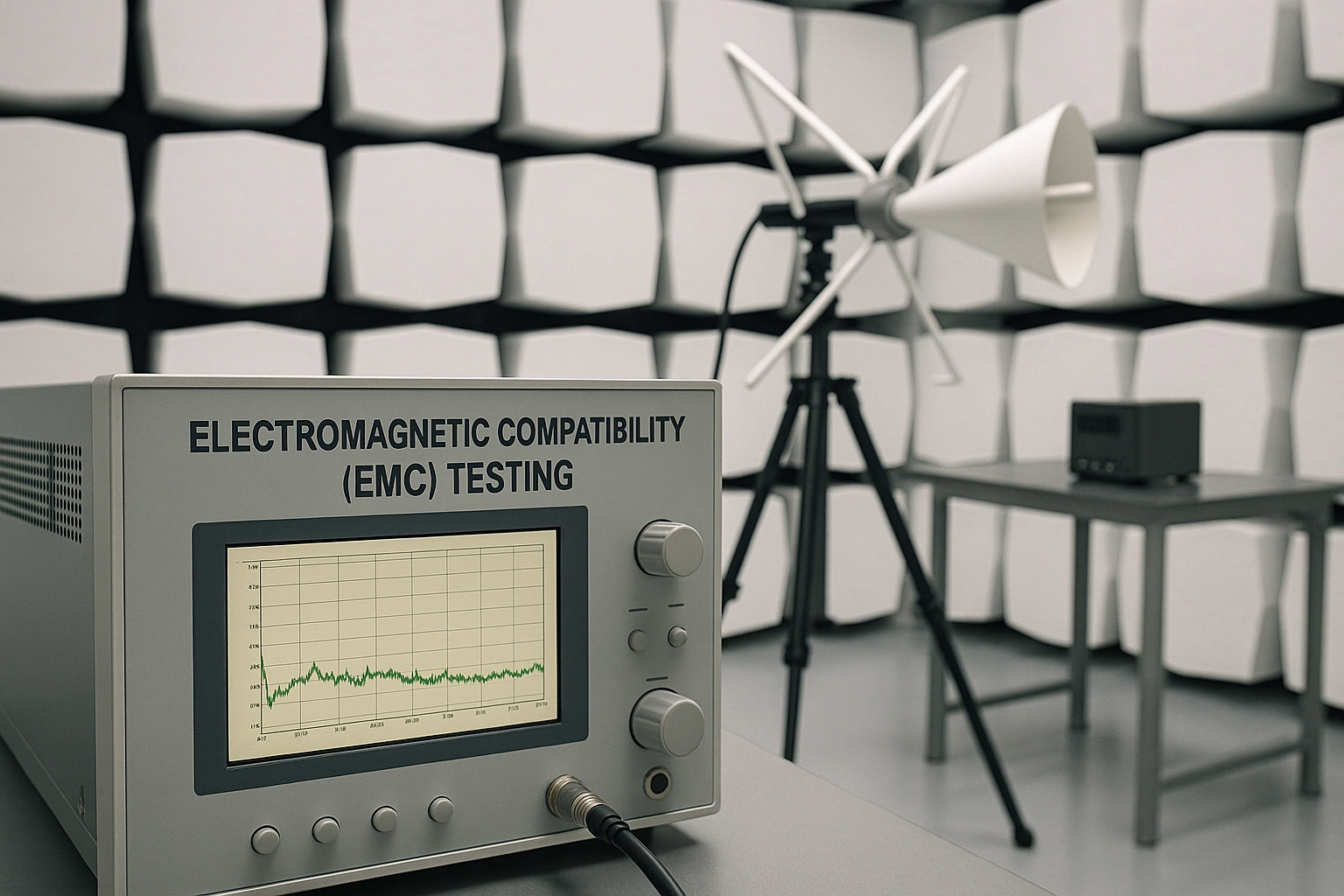GB T 38698 EMC Test for EV Charging Systems
The GB/T 38698 standard is a critical component in ensuring that electric vehicle (EV) charging systems meet stringent electromagnetic compatibility (EMC) requirements. This standard plays an essential role in safeguarding the integrity of electronic devices and protecting against interference from external sources, which can be particularly problematic in the close vicinity of EV charging stations.
The growing adoption of electric vehicles has led to a surge in demand for reliable EMC testing services that ensure these systems operate safely within their intended environments. GB/T 38698 provides a framework for assessing how well an EV charger functions under various electromagnetic interference conditions. It covers the testing of both the charging station itself and the associated communication interfaces, ensuring that they meet all relevant regulatory standards.
Compliance with this standard is not only mandatory in China but also essential for manufacturers seeking to penetrate international markets where similar regulations may apply. By adhering to these stringent guidelines, businesses can demonstrate their commitment to quality and reliability, thereby enhancing customer trust and satisfaction. Additionally, successful completion of the required tests opens up opportunities for certification, which is crucial for market entry and ongoing compliance.
The process begins with thorough preparation of the charging station according to specified procedures outlined in GB/T 38698. This includes ensuring that all components are correctly installed and connected prior to testing. Once ready, a series of tests will be conducted using specialized equipment designed specifically for EMC evaluation. These tests aim at verifying that the device does not emit excessive levels of radio frequency interference (RFI) or suffer from susceptibility to such disturbances.
Testing typically involves placing the charging station within an anechoic chamber equipped with appropriate shielding and monitoring systems. During this phase, various types of electromagnetic emissions are measured over a wide range of frequencies. Simultaneously, the system's response to externally generated signals is evaluated through controlled exposure scenarios. Both static and dynamic tests might be performed depending on the specific requirements set forth by the standard.
After completion of all prescribed evaluations, detailed reports summarizing findings along with any necessary recommendations for improvement are generated. These documents serve as evidence that compliance has been achieved, allowing customers to make informed decisions about purchasing or deploying new equipment.
The importance of GB/T 38698 cannot be overstated given its direct impact on public safety and consumer confidence in the reliability of EV charging infrastructure. As such, it is imperative for manufacturers and service providers alike to stay current with all relevant standards and best practices related to EMC testing.
Applied Standards
The GB/T 38698 standard integrates several internationally recognized norms into its framework, including ISO/IEC 17025 for laboratory accreditation. Compliance with these international standards ensures that the testing process adheres to high-quality benchmarks and produces reliable results.
- ISO/IEC 17025: Laboratory Accreditation System
- GB/T 38698: EMC Test Procedures for Electric Vehicle Charging Systems
The integration of these standards helps to ensure consistent application across different laboratories and jurisdictions, thereby promoting trust in the testing results.
Scope and Methodology
| Test Parameter | Description |
|---|---|
| Electromagnetic Emission Tests | Measures the levels of RFI emitted by the charging station. |
| Susceptibility Tests | Evaluates how well the system withstands exposure to external electromagnetic interference. |
| Conducted and Radiated Immunity Tests | Assesses the ability of the device to operate correctly in a harsh electromagnetic environment. |
| Transients and Surge Protection | Determines whether the charging station can handle sudden changes in voltage or current without malfunctioning. |
The scope encompasses all aspects of EMC performance relevant to electric vehicle charging systems, ensuring comprehensive evaluation. The methodology involves rigorous testing procedures that simulate real-world conditions to provide accurate assessments.
Environmental and Sustainability Contributions
- Reduction in harmful emissions through reliable operation of EV chargers.
- Promotion of sustainable practices by ensuring compliance with environmental regulations.
- Enhancement of public safety by mitigating risks associated with electromagnetic interference.
- Support for the development of eco-friendly transportation solutions.
The implementation of GB/T 38698 contributes positively to both human health and the environment, fostering a more sustainable future. By adhering to this standard, stakeholders contribute to creating safer and cleaner urban environments.





